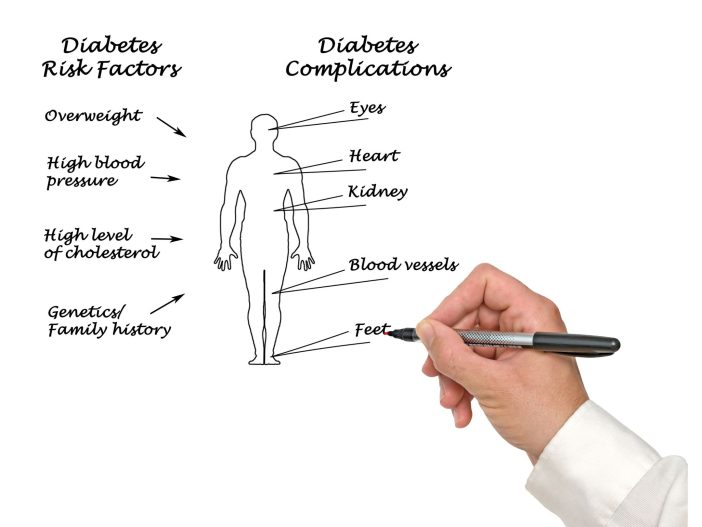Once upon a time, I believed diabetes was only related to obesity, but now I know better. I used to be very diligent about what I ate and how frequently I exercised, but I must admit that I have fallen behind in both areas. Also, I have a pattern of poor sleep, which may be problem for. Although I consider myself to be a night owl, this does not justify the fact that I probably do not get the amount of sleep that is recommended for an adult. My mother likes to remind me about my health, so she calls to see whether I’m still going to the gym and sends me messages on WhatsApp with loads of healthy living tips. When she sends her greetings along with some health advice, it always makes me chuckle and smile.
My unhealthy habits may put me at risk for diabetes in the future if I don’t change my lifestyle. My girlfriend, works for a medical device firm and has warned me about the seriousness of diabetes. Because of a family history of diabetes, her mother has taken the initiative to keep track of our overall grocery; as a result, we eat more vegetables and less processed food. Bad habits are easy to get back into, which is why I think it’s important to know how serious the disease is.
Note: Keep reading and test you knowlegede with The Sweetest Test: How Well Do You Know Diabetes?
There are two types of diabetes:
Type 1 diabetes – an autoimmune disease, which means that the body’s immune system mistakenly attacks and destroys the cells in the pancreas that produce insulin. As a result, people with type 1 diabetes are unable to produce insulin, which is essential for regulating blood sugar levels.
Type 2 diabetes – a chronic condition that affects how your body processes blood sugar (glucose). The body does not produce enough insulin, or the body’s cells do not react to insulin properly.

Type 1 and 2 diabetes can cause similar symptoms, which can vary depending on the severity of the condition. Here are five common symptoms of diabetes.
- Frequent urination: The body is trying to get rid of extra glucose in the urine.
- Feeling more thirsty than usual;The body needs to restore fluids lost through regular urination.
- Feeling tired and weak: When the body can’t use glucose for energy, you’ll feel exhausted.
- Cuts and wounds may heal slower: High blood sugar levels harm blood vessels and nerves, recovery is slowed.
- Vision can be affected: High blood sugar can enlarge the eye lens, making it hard to focus.
Steps to prevent type 2 diabetes
At present, it is not possible to prevent type 1 diabetes, however, the good news is that type 2 can be prevented or delayed by making healthy lifestyle choices.
It might be you, a close friend, or a family member, therefore we should all take care of our health, encourage our loved ones, and develop healthier behaviours. There are several steps you may take and recommend to a friend or family member who is at risk of developing type 2 diabetes to assist them reduce their risk of developing the disease.
- Regular check-ups: Regular check-ups with a healthcare provider can help identify and manage any health issues, including type 2 diabetes. Makes sure to do your check-ups and encourage your loved one to schedule regular appointments and to discuss any concerns or symptoms they may have.
- Healthy lifestyle habits: Maintaining a healthy weight, eating a balanced diet, and getting regular physical activity are all important for preventing or managing type 2 diabetes.
- The importance of sleep: Lack of sleep or poor sleep quality can affect blood sugar control. It’s important to prioritize sleep and to practice good sleep hygiene, such as setting a regular sleep schedule, creating a relaxing sleep environment, and avoiding screens before bedtime.
- Stress level management: When you’re stressed, your body releases cortisol, a hormone that can increase blood sugar levels. Over time, this can lead to insulin resistance and an increased risk of developing type 2 diabetes. Stress can have a negative impact on blood sugar levels and overall health. Stress management techniques such as meditation, deep breathing, or exercise helps to reduce stress level.
- Quit smoking: Smoking increases insulin resistance, which means the body has difficulty using insulin effectively to regulate blood sugar levels. This can lead to high blood sugar levels and an increased risk of developing type 2 diabetes.
It’s important to note that type 2 diabetes can also be caused by genetics and other factors. If you’re concerned about your risk of developing type 2 diabetes, it’s best to speak with your doctor.
How well do you know about diabetes? Click here to try the quiz
More knowledge about diabetes?

Sources
CDC. (2022, December). Diabetes Basics: Diabetes Symptoms. Retrieved from www.cdc.gov: https://www.cdc.gov/diabetes/basics/symptoms.html
D’Arrigo, T. (2021, June ). Diabetes – Guide: Early Signs and Symptoms of Diabetes. Retrieved from www.webmd.com: https://www.webmd.com/diabetes/guide/understanding-diabetes-symptoms
Diabetes UK . (20243, April ). Guide to diabetes – Complications: Complications of Diabetes. Retrieved from www.diabetes.org.uk/: https://www.diabetes.org.uk/guide-to-diabetes/complications
EndocrineWeb. (2022, May ). Diabetes: Quiz: Test Your Diabetes Knowledge. Retrieved from www.endocrineweb.com: https://www.endocrineweb.com/conditions/diabetes/diabetes-knowledge-quiz
Harvard T.H. Chan School of Public Health. (2023, April ). Diabetes: Simple Steps to Preventing Diabetes. Retrieved from www.hsph.harvard.edu: https://www.hsph.harvard.edu/nutritionsource/disease-prevention/diabetes-prevention/preventing-diabetes-full-story/
Healthline . (2022, January ). Nutrition: 11 Ways to Prevent Type 2 Diabetes. Retrieved from www.healthline.com: https://www.healthline.com/nutrition/prevent-diabetes
Mayo Clinic . (2023, January ). Patient Care & Health Infomation – Diseases & Conditions; Diabetes . Retrieved from www.mayoclinic.org: https://www.mayoclinic.org/diseases-conditions/diabetes/symptoms-causes/syc-20371444





Nice and informative article that draws from personal experience.
Please stay tuned for more content 🙂
Great post! It’s important to recognize that diabetes is not just related to obesity, and lifestyle choices play a significant role in preventing or managing the disease. The quiz is really good as well made me research what kind of events they have on world diabetes day.
I’m glad the post encouraged you to learn more about diabetes, as that was my goal.
Nice article !!!!
It’s really important to prioritise our health and make conscious choices to prevent or manage diabetes. By adopting a healthy lifestyle, staying proactive with regular check-ups, and addressing risk factors like obesity and poor sleep, we can significantly reduce the chances of developing Type 2 diabetes. Taking these steps not only benefits us but also sets a positive example for our loved ones. Remember, small changes can make a big difference in our overall well-being.
Thank you for your thoughtful comment! Absolutely, every step towards a healthier lifestyle counts. Diabetes prevention and management are critical, and adopting a healthy lifestyle is an important part of it.
Thank you for sharing your own experience with us!
Very eye opening!
I appreciate your comment and am happy to have been able to share my experience with you. I hope that it helps to shed some light on the topic and raises awareness.
A well written blog post! It is easy to understand and also very informative.
Thank you for sharing and raising awareness for this disease!
Thank you for your kind words. I am so glad to hear that you found it informative and easy to understand. It is my goal to raise awareness about this disease.
I love the fact that even if you don’t know too much about it, you come out with very cultivating informations about the subject.
Thanks for commenting on the blog post. I see the blog as a way of educating myself about this topic and hopefully and you also can learn something from it.
Extremely motivational blog post. This subject, in my opinion, truly needs to be brought to light because there are so many people that could use posts of this nature, and it’s great to be informed.
Thank you for your encouraging words! I’m glad you found the blog post motivational and informative. It’s important to shed light on subjects like this to help and educate as many people as possible. If you have any questions or suggestions for future topics, please don’t hesitate to share. Your feedback is highly appreciated!
By the way, I’ve just uploaded a new blog post titled “Pregnancy vs Diabetes.”
Your blog post is excellent! The information is presented clearly and is very enlightening. Thank you for sharing your knowledge and helping to increase awareness about this disease.
Thank you! I’m glad you found it enlightening and helpful. Your support means a lot, and I’m always happy to share knowledge.
By the way, I’ve just uploaded a new blog post titled “Pregnancy vs Diabetes.”
https://blog.hslu.ch/majorobm/2023/04/21/pregnancy-vs-diabetes/